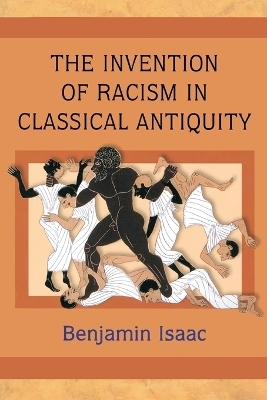
The Invention of Racism in Classical Antiquity
Princeton University Press (Verlag)
978-0-691-12598-5 (ISBN)
There was racism in the ancient world, after all. This groundbreaking book refutes the common belief that the ancient Greeks and Romans harbored "ethnic and cultural," but not racial, prejudice. It does so by comprehensively tracing the intellectual origins of racism back to classical antiquity. Benjamin Isaac's systematic analysis of ancient social prejudices and stereotypes reveals that some of those represent prototypes of racism--or proto-racism--which in turn inspired the early modern authors who developed the more familiar racist ideas. He considers the literature from classical Greece to late antiquity in a quest for the various forms of the discriminatory stereotypes and social hatred that have played such an important role in recent history and continue to do so in modern society.
Magisterial in scope and scholarship, and engagingly written, The Invention of Racism in Classical Antiquity further suggests that an understanding of ancient attitudes toward other peoples sheds light not only on Greco-Roman imperialism and the ideology of enslavement (and the concomitant integration or non-integration) of foreigners in those societies, but also on the disintegration of the Roman Empire and on more recent imperialism as well. The first part considers general themes in the history of discrimination; the second provides a detailed analysis of proto-racism and prejudices toward particular groups of foreigners in the Greco-Roman world. The last chapter concerns Jews in the ancient world, thus placing anti-Semitism in a broader context.
Benjamin Isaac is Lessing Professor of Ancient History at the University of Tel Aviv. He is a member of the Israel Academy of Sciences and Humanities and the author of "The Limits of Empire: The Roman Army in the East".
ILLUSTRATIONS ix ACKNOWLEDGMENTS x LIST OF ABBREVIATIONS xii INTRODUCTION 1 PART 1: STEREOTYPES AND PROTO-RACISM: CRITERIA FOR DIFFERENTIATION 53 CHAPTER 1 Superior and Inferior Peoples 55 CHAPTER 2 Conquest and Imperialism 169 CHAPTER 3 Fears and Suppression 225 Conclusions to Part 1, Chapters 2 and 3 248 PART 2: GREEK AND ROMAN ATTITUDES TOWARDS SPECIFIC GROUPS-GREEK AND ROMAN IMPERIALISM 253 INTRODUCTION TO PART 2 255 CHAPTER 4 Greeks and the East 257 CHAPTER 5 Roman Imperialism and the Conquest of the East 304 CHAPTER 6 Phoenicians, Carthaginians, Syrians 324 CHAPTER 7 Egyptians 352 CHAPTER 8 Parthia/Persia 371 CHAPTER 9 Roman Views of Greeks 381 CHAPTER 10 Mountaineers and Plainsmen 406 CHAPTER 11 Gauls 411 CHAPTER 12 Germans 427 CHAPTER 13 Jews 440 Conclusions to Part 2 492 END CONCLUSIONS 501 Ethnic Prejudice, Proto-Racism and Imperialism in Antiquity 503 SELECTED BIBLIOGRAPHY 517 INDEX OF SOURCES 541 GENERAL INDEX 553
| Erscheint lt. Verlag | 5.3.2006 |
|---|---|
| Zusatzinfo | 10 halftones |
| Verlagsort | New Jersey |
| Sprache | englisch |
| Maße | 152 x 235 mm |
| Gewicht | 794 g |
| Themenwelt | Geschichte ► Allgemeine Geschichte ► Vor- und Frühgeschichte |
| Geschichte ► Teilgebiete der Geschichte ► Kulturgeschichte | |
| Sozialwissenschaften ► Ethnologie | |
| Sozialwissenschaften ► Soziologie | |
| ISBN-10 | 0-691-12598-8 / 0691125988 |
| ISBN-13 | 978-0-691-12598-5 / 9780691125985 |
| Zustand | Neuware |
| Haben Sie eine Frage zum Produkt? |
aus dem Bereich


